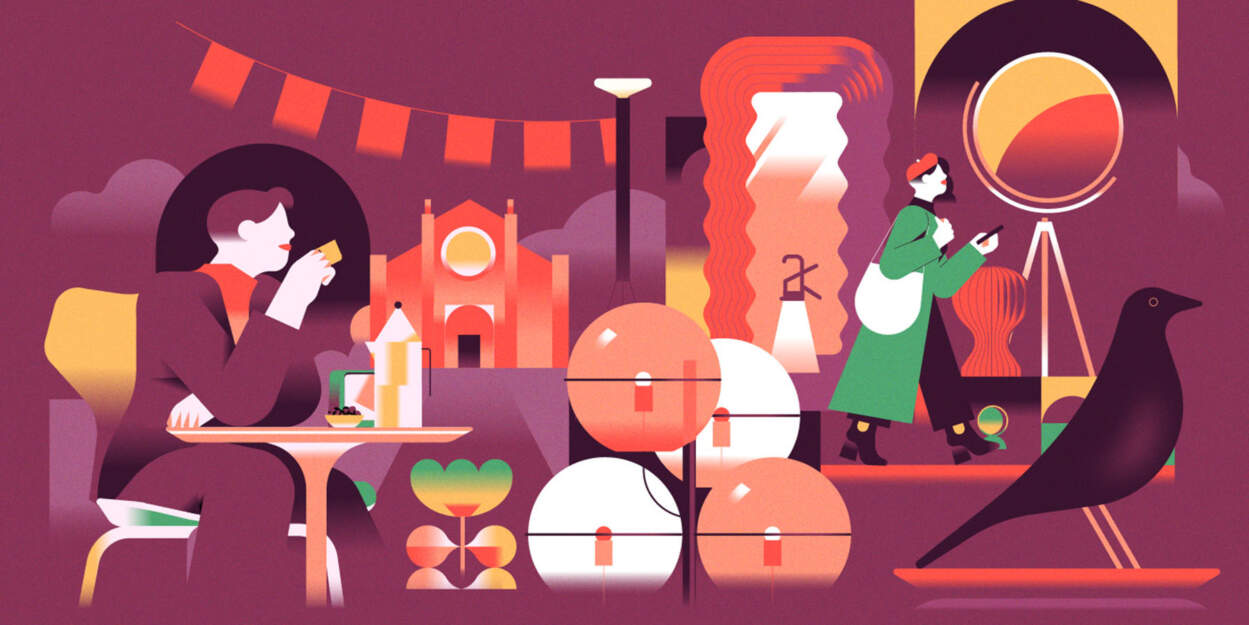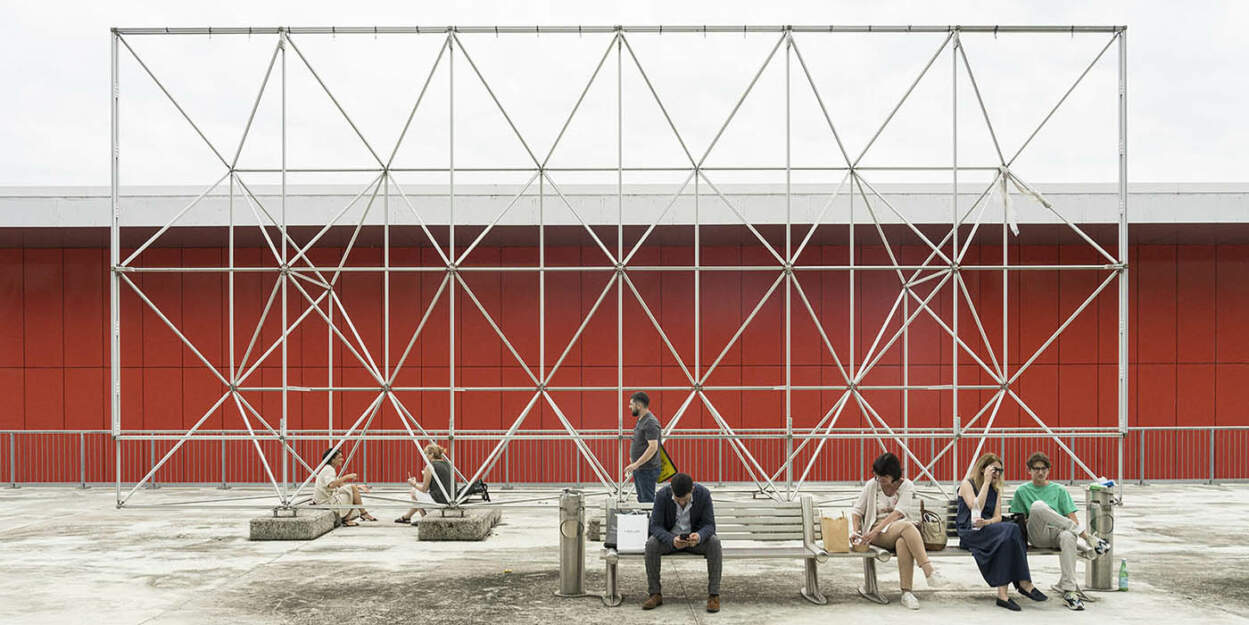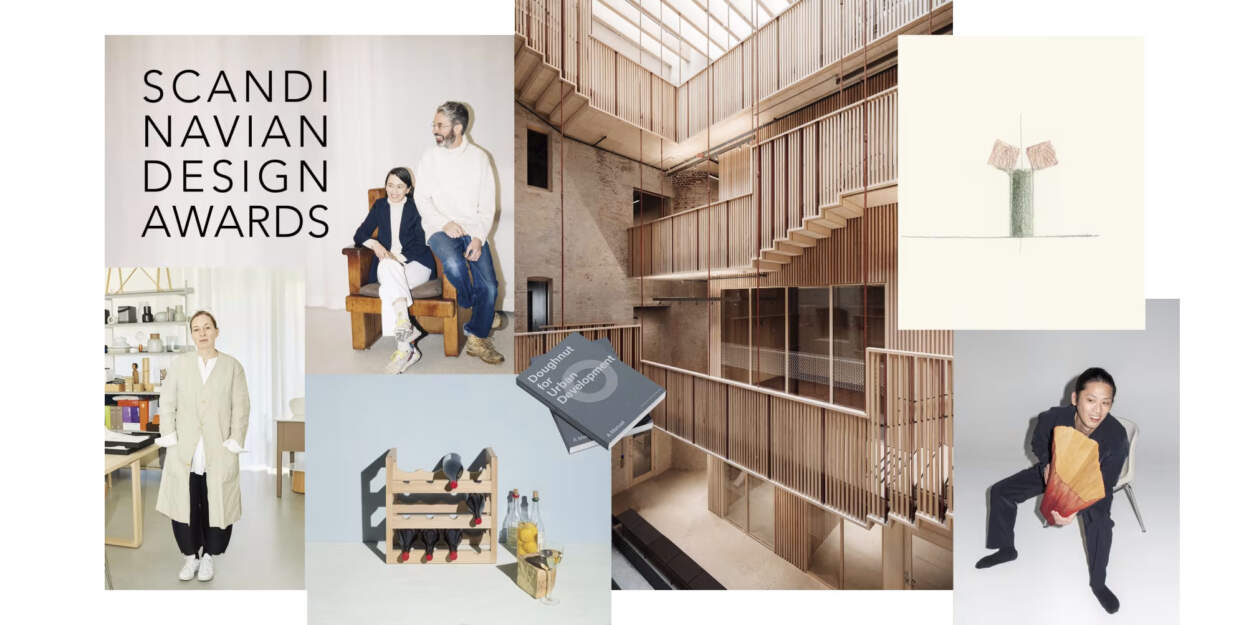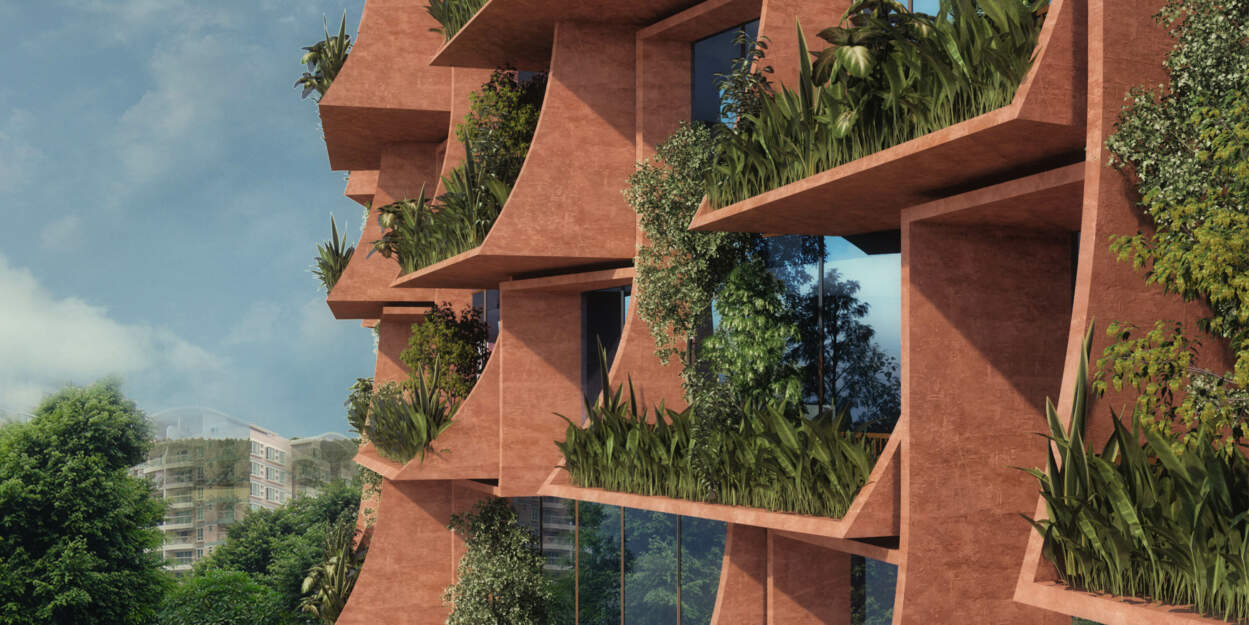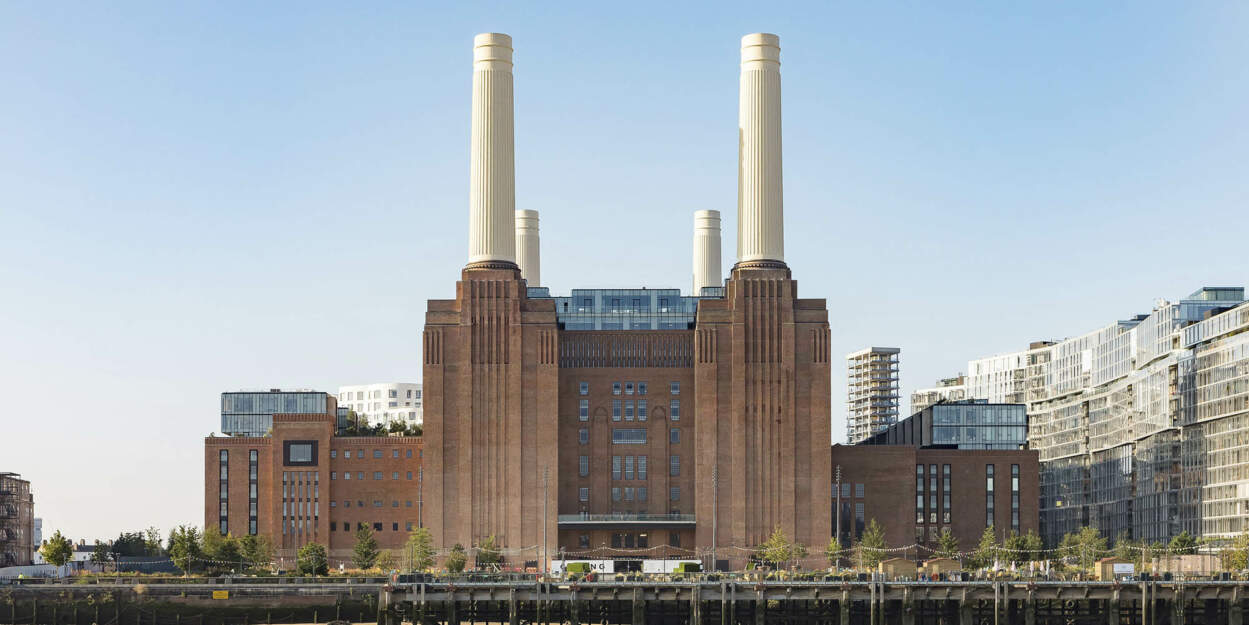White Arkitekter, Powerhouse Company, Heatherwick Studio and Herzog & de Meuron are among the World Architecture Festival 2019 category winners announced on the second day of the event held in Amsterdam. The festival's judges recognised a diverse array of completed and unbuilt projects across 15 categories.
The winners of the ‘Hotel and Leisure – Completed Buildings' category, supported by GROHE, were Architecture Workshop for Lindis Lodge – a five-bedroom luxury lodge in a remote glacial valley in the New Zealand Southern Alps. The site is exposed to an extreme climate ranging from plus 35 degrees in summer to minus 16 degrees in winter with severe winds as a regular occurrence. Judges described the project as ‘poetic', ‘inspiring' and ‘sensitively considered' with sustainability at its best ‘from water treatment, heating, cooling, natural ventilation and insulation'.
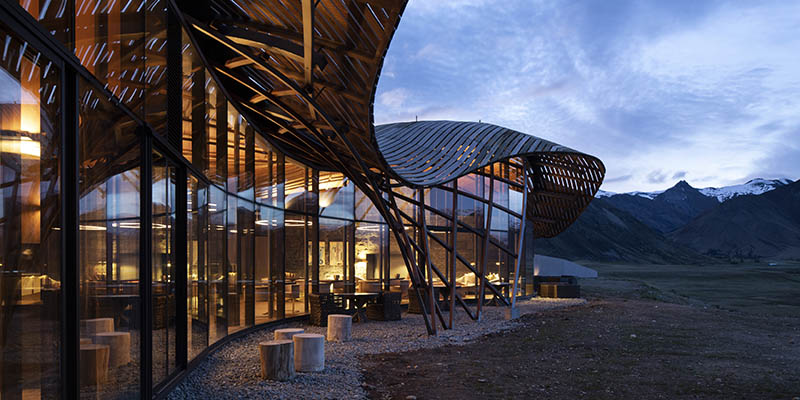
Lindis Lodge by Architecture Workshop © Patrick Reynolds Photography
Serie + Multiply Architects won the ‘Mixed Use – Completed Buildings' award, supported by ABB and Busch-Jaegar, for Oasis Terraces which serves the public housing residents of Punggol, Singapore bringing together a shopping centre, polyclinic and community amenities in a single building. Oasis terraces ‘displays a very successful integration of disparate programmes into a coherent composition, which appears very adaptable to alternative uses' judges commented.
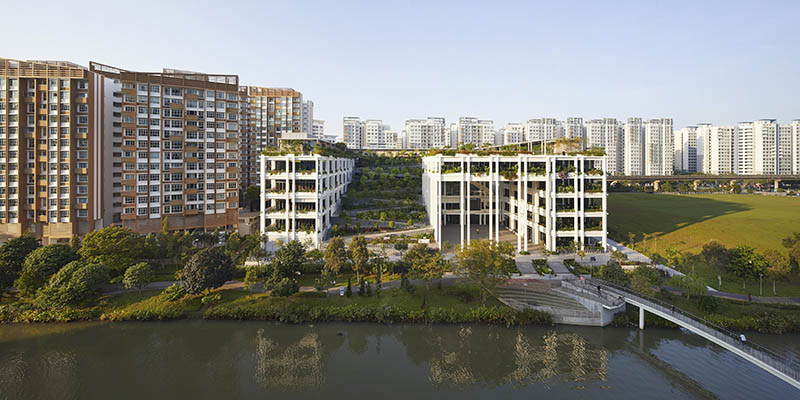
Oasis Terraces by Serie + Multiply Archtects © Hufton + Crow
CEBRA were winners of the ‘Religion – Completed Buildings' category for Qasr Al Hosn: Al Musallah. The Al Hosn site is a major reference point to the history of Abu Dhabi, telling the story of the city, its people, their history and modernity. It comprises two major iconic structures: Qasr Al Hosn (the oldest structure in Abu Dhabi, historic home of the ruling family and seat of government) and The Cultural Foundation (the emirate's cultural centre, with library, theatre and exhibition spaces). Judges commented: ‘Through the landscape, CEBRA have enhanced this heritage site and in doing so, created great architecture'.
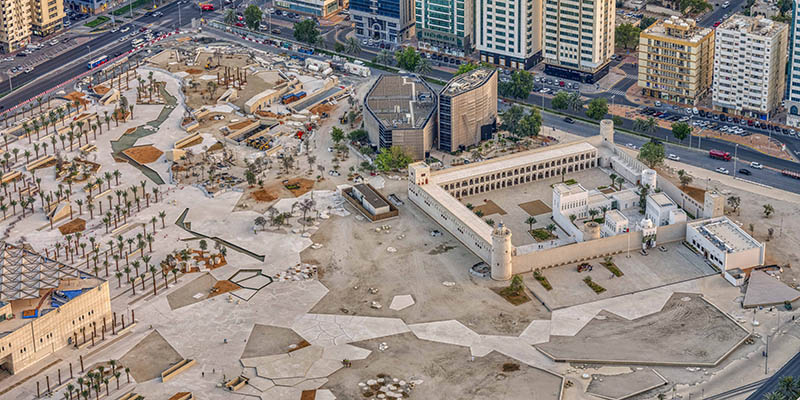
Qasr Al Hosn: Al Musallah by CEBRA © CEBRA
Heatherwick Studio won the ‘Shopping – Completed Buildings' award for their Coal Drops Yard development. Located within the King's Cross development, the linear two-storey structures were built in 1850 to receive coal and were later adapted for light industry, storage and nightclubs until they fell into disuse in the late 1990s. The structures were earmarked for retail in the masterplan for the 67-acre site, with the studio brought on board to create two bridges to link the two structures. “Through a simple gesture, the project becomes a landmark for King's Cross while respecting the site's heritage.” judges commented.
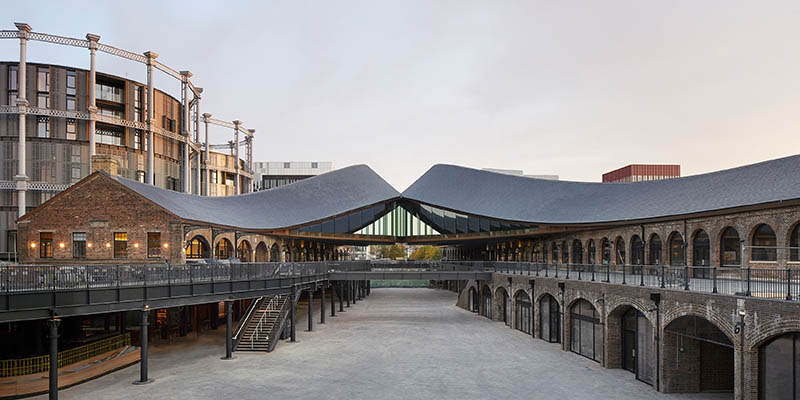
Coal Drops Yard by Heatherwick Studio © Hufton+Crow
The ‘Villa – Completed Buildings' category winner was Villa B, designed by Powerhouse Company ‘engineered to meet quality expectations beyond luxury' as commented by judges. Villa B combines the robustness of the classical townhouse with the elegance and openness of the modernist bungalow.
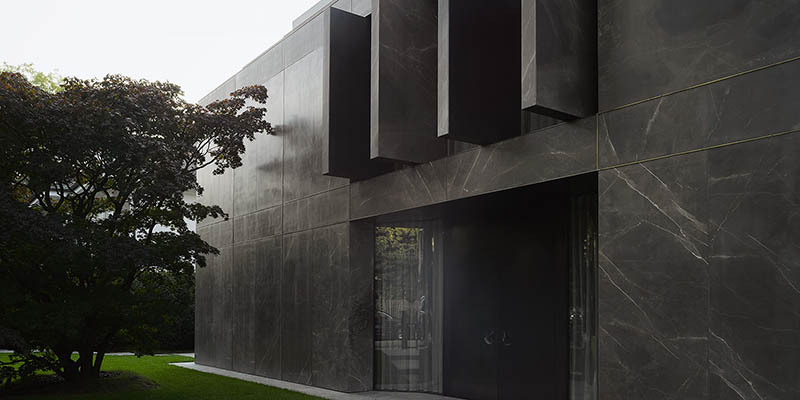
Villa B by Powerhouse Company © Bas Princen
The ‘Commercial Mixed Use – Future Projects' award, supported by Miele, was won by Studio Akkerhuis for a historic landmark in the city of Leiden known as De Meelfabriek. Having long been neglected and inaccessible for the city, today the project strives to reconnect the site with its surroundings, creating a new vibrant urban fabric of living, working, recreational and retail facilities. The judges describe the site as ‘a truly mixed-use complex which is permeable to public thanks to this mix of functions' further adding ‘De Meelfabriek could serve as a model for other industrial brownfield sites'.
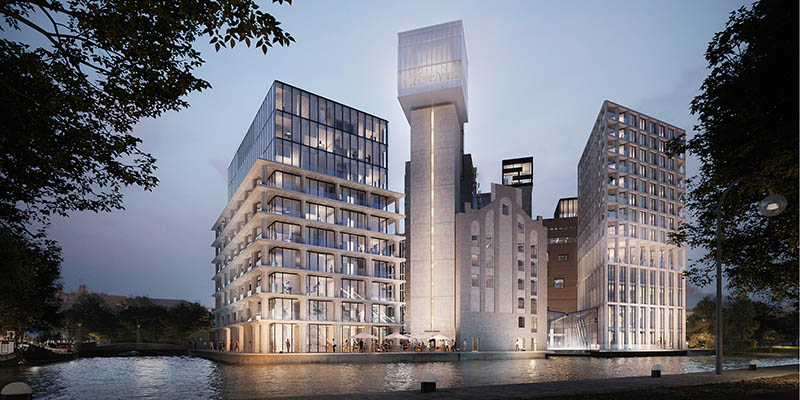
De Meelfabriek by Studio Akkerhuis © Studio Akkerhuis
Design & More International were victorious in the ‘Competition entries – Future Projects' category, scooping the award for their The Cultural Canyon – Rebuilding Baghdad Design Center. Currently an underused site in Baghdad, Iraq, the competition site and the skin of the old building are now called Al-Multaqa (the meeting point), where people usually meet before heading to the crowded surrounding areas. Judges commented: ‘The project reveals a delicate layering of history with a humble and respectful approach towards inherent cultural values of its site. It's novelty stems from a rich re-interpretation and rigorous research of meeting paths in the urban public realm'.
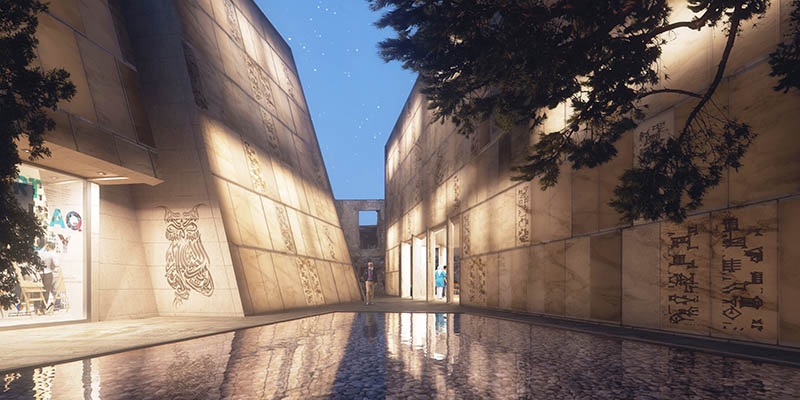
THE CULTURAL CANYON – Rebuilding Baghdad Design Center by DESIGN & MORE INTERNATIONAL © DESIGN & MORE INTERNATIONAL
The ‘Culture – Future Projects' category winners were White Arkitekter with The New GoDown Arts Centre. For more than a decade, the centre has served as a home, workplace, meeting place and address for artists in in Nairobi, Kenya and has contributed to their stability, legitimacy, visibility and creative confidence. It's ‘combination of social, traditional and environmental objectives are clearly articulated' according to judges, whilst the project demonstrates a ‘good list of local materials and construction'.
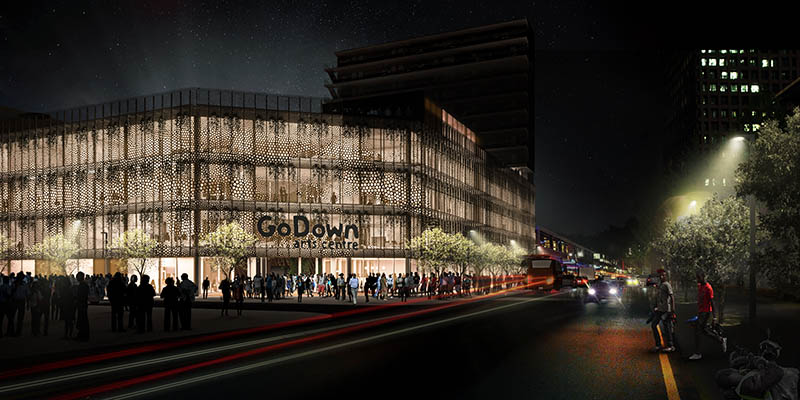
The New GoDown Arts Centre by White Arkitekter © White Arkitekter
The ‘Education – Future Projects' category winners were Maisam Architects & Engineers with The School in a Park which includes Ahliyyah School for Girls and The Bishop School for Boys, two of the most prominent schools in Amman, Jordan. Judges commented: ‘This new campus for the old, established school demonstrates a sensitive balance between preserving historic memories and creating a new architectural statement.'
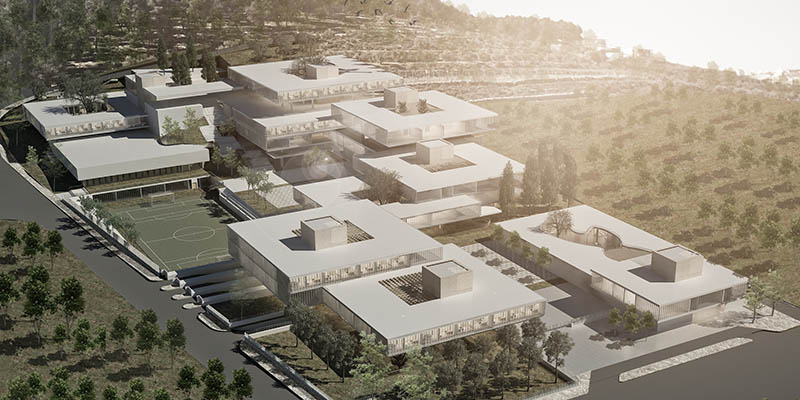
The School in a Park by Maisam Architects & Engineers © Maisam Architects & Engineers
STUDIO V Architecture won the ‘Experimental – Future Projects' category with their The Tanks at Bushwick Inlet Park, a real proposal for a New York City, 21st century public park that pays homage to the community's legacy of manufacturing. The project ‘embraces a collaborative process that interperates community needs and ideas into the architectural process whilst preserving industrial heritage'.
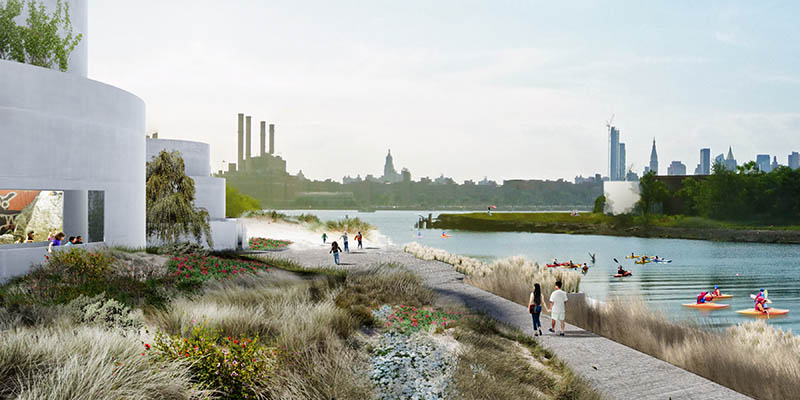
The Tanks at Bushwick Inlet Park by STUDIO V Architecture © Studio V Architecture and Ken Smith Workshop
At World Architecture Festival 2019, White Arkitekter AB / DIFK Dipl.-Ing. Florian Kosche / ÅF Engineering AS won the ‘Health – Future Projects' award for the new psychiatric unit at the Dronning Ingrid's hospital in Nuuk, Greenland which gathers all of Greenland's mental health services in one department. The clinic's design is based on the seven pillars for healing architecture, including daylight and contact with nature, to aid recovery and reduce the length of stay. Judges also highlighted it's ‘importance to the community' and ‘the environment'.

Psychiatric clinic, Nuuk by White Arkitekter AB, DIFK Dipl.-Ing. Florian Kosche, ÅF Engineering AS © White Arkitekter and Luxigon
Omer Arbel Office were victors in the ‘House – Future Projects' category for 75.9 House constructed on a hay farm in the Canadian Pacific Northwest. Judges were impressed by the ‘relationship and connection between building and landscape' plus the ‘experimental process with fabric form concrete'.
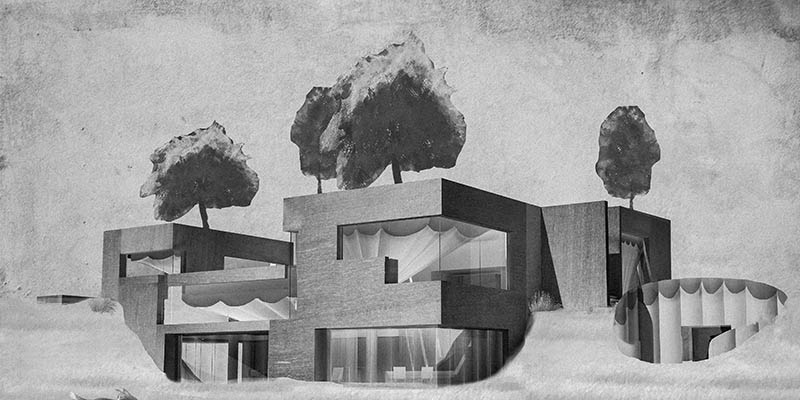
75.9 House by Omer Arbel Office © Omer Arbel Office
The ‘Residential – Future Projects' award, supported by GROHE, was awarded to Badaevskiy Brewery, Redevelopment by Herzog & de Meuron and APEX project bureau. The aim of the project is to redevelop the six-hectares of previous factory area, between the Moscow River and the vector to Minsk, and to transform this famous but largely abandoned and run down site into a vibrant destination point in central Moscow to include 100'000 m² of new residential, office and retail space. ‘Striking at first glance, this project turns out to be a clever and considered example of critical conservation' said judges with ‘a brave juxtaposition of old and new'.
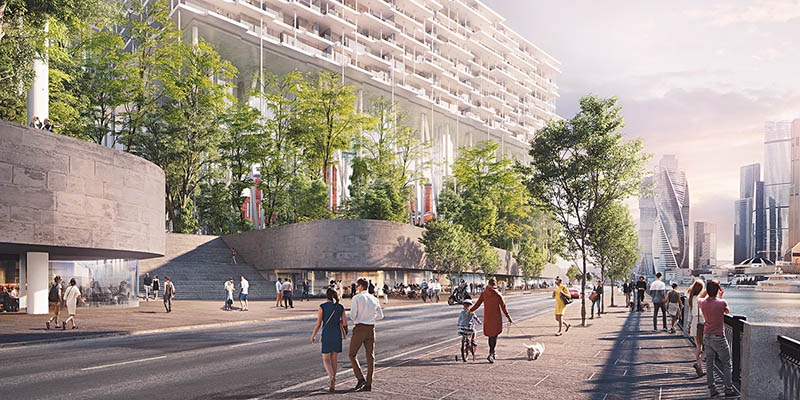
Badaevskiy Brewery, Redevelopment by Herzon & de Meuron and APEX project bureau © Herzon & de Meuron
The ‘Health – Completed Buildings' category was won by Sharon Davis Design for their Bayalpata Regional Hospital in Achham, one of Nepal's most deprived and remote districts, with few healthcare providers despite a population of over 250,000. Set on a hilltop and surrounded by the terraced slopes of the Seti River valley, the 3 hectare (7.5 acre) campus with 45,500 s.q ft of built area includes five major medical buildings that house outpatient, inpatient, surgery, antenatal, and emergency facilities for 70 beds, plus clinical functions such as pharmacy, radiology, and laboratory spaces. Judges commented that the building responds ‘intelligently to site and situation' and ‘has impeccable zero carbon design credentials'.
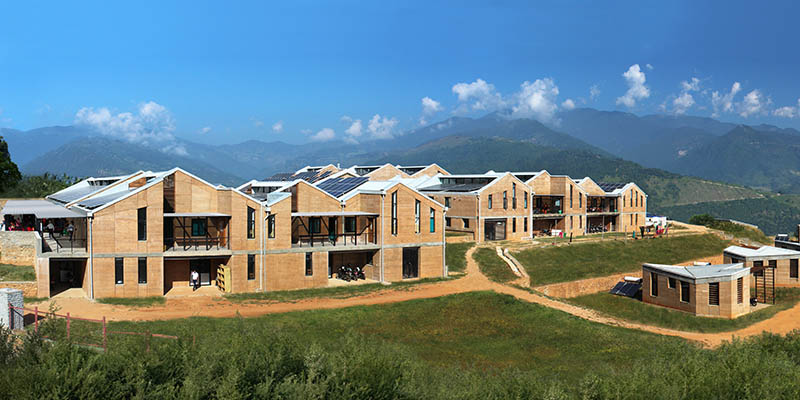
Bayalpata Regional Hospital by Sharon Davis Design © Sharon Davis Design and Possible Health
NIKKEN SEKKEI won the ‘Higher Education and Research – Completed Buildings' award for KOKUGAKUIN UNIVERSITY Learning Center at World Architecture Festival 2019. Built between a shrine and a residential area in the heart of Tokyo, Japan, judges commented that “the new learning centre solves complex urban challenges in a way that looks effortless” adding that “the building has a poetic relationship with both city and ancient shrine precinct”.
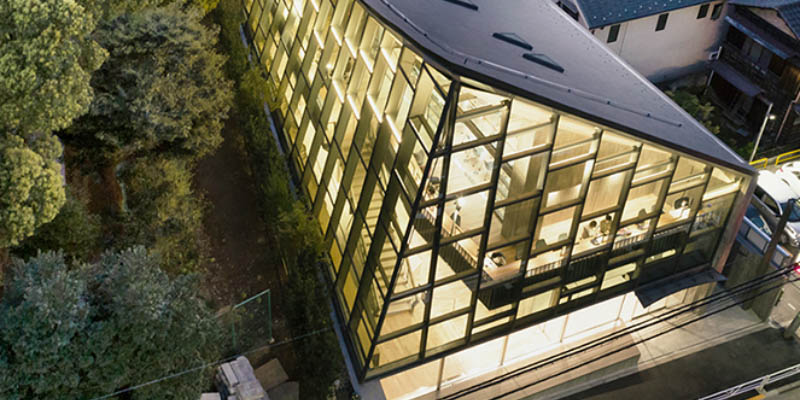
KOKUGAKUIN UNIVERSITY Learning Center by NIKKEN SEKKEI © Nozomu Shimao
Here you can discover all the World Architecture Festival 2019 category winners announced on Day 1



